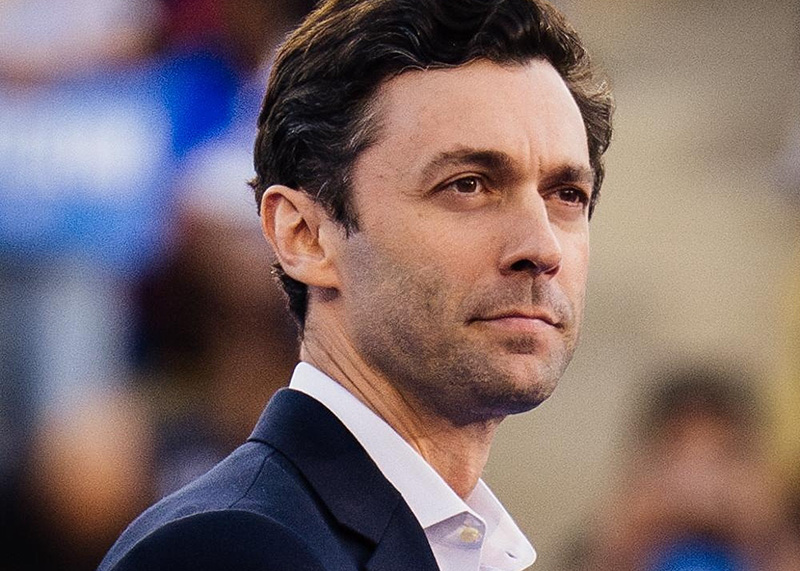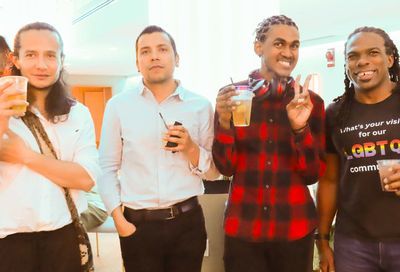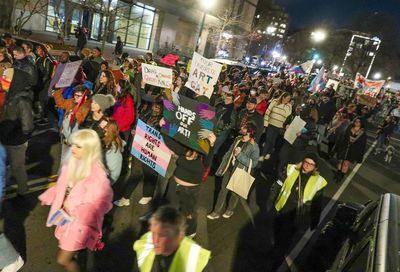Charlotte City Council Republican proposes new LGBTQ nondiscrimination ordinance
Ordinance would be the first approved since state lawmakers pushed through the HB 2 "bathroom bill" five years ago.

A Republican City Council member in Charlotte, North Carolina, has proposed a potential ordinance to protect LGBTQ people from various forms of discrimination.
It’s the first such measure for the city since its last ordinance was challenged and overturned by the state’s controversial and short-lived “bathroom bill,” known as HB 2.
That law barred transgender people in the state from accessing restrooms and changing facilities matching their gender identity. It also repealed all existing municipal nondiscrimination ordinances and prohibited all municipalities in the state from passing new ordinances that included protections for groups currently not named or covered by state law.
Although HB 2 was ultimately repealed following an economic backlash against the state — including the loss of businesses and revenue from canceled events and conferences — the “compromise” bill that repealed the law, known as HB 142, barred municipalities from passing their own LGBTQ-inclusive nondiscrimination ordinances until after December 2020 and placed a permanent prohibition on municipalities writing their own laws pertaining to restroom access.
Since the prohibition on nondiscrimination ordinances has expired, several cities throughout the state have passed LGBTQ-inclusive ordinances, but Charlotte is treading cautiously.
In that spirit, Charlotte City Council member Tariq Bokhari (R) has proposed a law to protect LGBTQ residents from discrimination based on sexual orientation and gender identity, as well as protections for people wearing natural hairstyles.
According to The Charlotte Observer, Democratic members of the City Council are working on their own proposals to introduce a comprehensive nondiscrimination ordinance. But Bokhari’s is the only draft that has been made public so far. A public hearing and debate over a proposed ordinance is expected in August of this year.
The Mecklenburg Board of County Commissioners unanimously passed its own resolution in early February. That policy encourages protections for sexual orientation, gender identity and natural hairstyles, but there is no enforcement mechanism to ensure individuals, businesses, and employers are abiding by it.
Bokhari’s proposal, which he touts as a “conservative” nondiscrimination ordinance, claims to be crafted in a way to protect the principles of “freedom and individual liberty.”
The proposal would add protections in employment and public accommodations for sexual orientation, gender identity, and gender expression into local law, along with protections for people of color who wear natural hair styles, which was absent in the city’s controversial 2016 ordinance.
Bokhari’s proposal does not include protections against discrimination based on marital status, family status, or a person’s sex, which had been included in the 2016 ordinance. Federal nondiscrimination protections already cover sex as a protected class, and the Biden administration embraces the interpretation that anti-LGBTQ discrimination is a form of sex-based discrimination.
“We were focused on these topics right now,” Bokhari told the Observer. “That doesn’t mean that when other things get brought to our attention, we can’t add them. At the end of the day…we were looking to fill gaps locally that federal legislation didn’t touch.”
He also told the newspaper that he hopes his proposed ordinance “shines a spotlight on our conservative principles and how they, when applied to virtually any policy-based topic, can justify and enable even better outcomes.”
If Bokhari’s ordinance were to pass, the biggest change from five years ago would be that it complies with existing state law — under the provisions of HB 142 — and does not address restroom access whatsoever.
Under state law, while transgender North Carolinians are not expressly prohibited from using restroom and locker room facilities matching their gender identity, there are no statutes protecting trans individuals from harassment in those spaces, either.
While the 2016 ordinance was limited to employment protection within city government, Bokhari’s proposal is more robust, also covering private employers with one or more employees in Charlotte.
However, similar to the 2016 law, there are exceptions for religious organizations and groups, as well as entities that restrict membership, like a private country club or fraternity group.
See also: Five years after passing “bathroom bill,” North Carolina lawmakers introduce anti-trans sports bill
Cameron Pruette, the president of the LGBTQ Democrats of Mecklenburg County, said he’d like to see the ordinance’s private employment portion bolstered, and fines and penalties imposed on those who violate the ordinance, but called Bokhari’s proposal a “good opening offer.”
“I’m grateful someone has released a draft, and I’m excited for next steps and hope that Democrats will strengthen it,” Pruette said.
The City Council was criticized by LGBTQ advocates last month for moving too slowly compared to other cities in the state, including Durham, Chapel Hill, and Greensboro, among others, in restoring LGBTQ protections that were in place prior to passage of HB 2.
At the time, Mayor Pro Tempore Julie Eiselt said council members would discuss proposed amendments to the existing ordinance at its Aug. 9 meeting, including discussion of Bokhari’s proposed ordinance. Eiselt cautiously expressed hope that a bipartisan compromise could be reached where the City Council unanimously passes a nondiscrimination ordinance.
But Charlotte Black Pride co-founder Jermaine Nakia Lee is skeptical, saying the details of Bokhari’s proposal — in particular its emphasis on protecting individual liberties, which may lead to additional exemptions or loopholes — need to be carefully scrutinized before being approved for the sake of bipartisanship.
See also:
Veterans Affairs seeking to allow transgender veterans to receive medically necessary care
Person killed, another hospitalized after pickup truck crashes into Pride parade in Florida
Anti-LGBTQ hate group panics about “surviving the rainbow onslaught” during Pride
Support Metro Weekly’s Journalism
These are challenging times for news organizations. And yet it’s crucial we stay active and provide vital resources and information to both our local readers and the world. So won’t you please take a moment and consider supporting Metro Weekly with a membership? For as little as $5 a month, you can help ensure Metro Weekly magazine and MetroWeekly.com remain free, viable resources as we provide the best, most diverse, culturally-resonant LGBTQ coverage in both the D.C. region and around the world. Memberships come with exclusive perks and discounts, your own personal digital delivery of each week’s magazine (and an archive), access to our Member's Lounge when it launches this fall, and exclusive members-only items like Metro Weekly Membership Mugs and Tote Bags! Check out all our membership levels here and please join us today!























You must be logged in to post a comment.